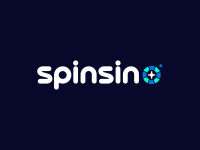GambleAware is approaching Managed Closure

GambleAware, the UK’s leading charity for gambling‑harm prevention and treatment, has confirmed a managed closure by 31 March 2026. The responsibility for commissioning research, prevention and treatment services shifts to a new, statutory government‑led framework.
This announcement comes right on the heels of GambleAware releasing a new support tool. It makes you wonder how much this decision has caught them by surprise.
GambleAware Managed Closure Plan
GambleAware’s Chair of Trustees, Andy Boucher, announced this on 25 July. The charity will “transition to the UK government and new commissioners across England, Scotland and Wales” under a statutory levy model.
Until April 2026, GambleAware will honour existing commissioning agreements and maintain its helpline, National Gambling Support Network and prevention resources “to ensure stability and continuity for our beneficiaries” (GambleAware).
Play in the best Online Casinos
Just click on the images to register. You can find a full casino list here.
Advantages of the Change
- Stable, Equitable Funding: Unlike the voluntary contributions model—criticized for uneven operator donations—the new statutory levy will apply uniformly to all licensed operators, expected to significantly increase research, education and treatment (RET) funds in the UK.
- Public‑Health Led Approach: With three national commissioners for research, prevention and treatment, the system aligns gambling‑harm services with other public health initiatives, ensuring a more integrated, evidence‑based response (GambleAware).
- Predictable Budgets: Charities and service providers can plan long‑term programmes without the risk of fluctuating voluntary donations, improving sustainability of harm‑reduction efforts.
Disadvantages of the Change
- Potential Bureaucracy: Industry experts warn that embedding services within government structures may introduce red tape, slowing responsiveness to emerging harms.
- Loss of NGO Flexibility. As roles transfer to public bodies, specialized community projects and rapid innovations championed by third‑sector partners risk being deprioritized.
- Transitional Risks: Any gap between GambleAware’s wind‑down and full statutory system implementation could leave vulnerable individuals without seamless support.
Industry Experts Weigh In
- Jordan Lea, Director at Deal Me Out, expressed concern.
“The cessation of the United Kingdom’s most recognizable and trusted gambling‑harm charity is a stain on the implementation of the statutory levy… with more closures to come as a result of a mismanaged implementation of government policy.”
- Will Prochaska, Strategy Director of Gambling With Lives, cautioned on influence.
“Whichever other charities receive the windfall in GambleAware’s place will be being rewarded for supporting the industry’s philosophy of individual responsibility.”
- Betting & Gaming Council (BGC) representatives, while supportive of a levy, have voiced concerns over added levies’ impact on land‑based businesses and the potential loss of specialist service expertise.
Consequences for the Gambling Industry
- Mandatory Contributions. Operators will face a statutory charge estimated between 0.1 %–1.1 % of gross gambling yield. This is replacing voluntary donations, and raising over £100 million annually for harm‑reduction services.
- Regulatory Oversight. With public bodies commissioning services, the industry may see more stringent compliance and reporting requirements, potentially leading to higher operational costs.
- Shift in Partnerships. Long‑standing third‑sector partnerships—such as with GamCare and local community organisations—will need to renegotiate their role under government frameworks, reshaping the ecosystem of support.
GambleAware’s New Support Tool
Amid this transition, GambleAware released the GambleAware Support Tool app on 14 July 2025. It’s offering free, anonymous, evidence‑based advice to help users cut down or quit gambling. Early data shows:
- 18–24 year‑olds are twice as likely as other age groups to use the app to cut back.
- Nearly 50 % of young users cite “saving money” as their primary goal.
The app—available on Android and iOS—allows users several things. To set personal targets, track spending and access podcasts, educational materials and signposting to formal support, bolstering self‑help ahead of more intensive interventions.
What happens now?
As GambleAware enters its final commissioning phase, the charity wants to emphasize this. Current helplines, online assessments and community programs remain fully operational until March 2026.
From April onwards, the new statutory levy and appointed commissioners will carry forward the mission to reduce gambling harms. This is marking both an end of an era and a new chapter in the UK’s public‑health response to gambling risks.
Further Reading
You must be logged in to post a comment.



